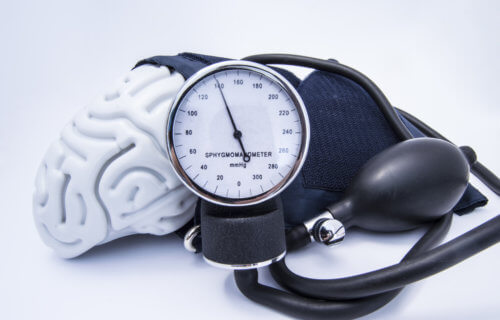NEWTOWN, Australia — Although modern medicine has found some connections, scientists still don’t have all the pieces of the puzzle when it comes to dementia onset. However, a new international study of over 28,000 people may help clear up some of that confusion. Researchers say their findings provide the most compelling evidence to date that lowering blood pressure decreases dementia risk.
Dementia affects approximately 50 million people across the world, and that doesn’t include the families and loved ones who care for many of these individuals. Rates are likely to triple by 2050, due to the world’s increasing elderly population. Moreover, cost of care for the condition in the United States ranges from $20,000 to 40,000 per person annually.
Dr. Ruth Peters, an associate professor at UNSW Sydney and program lead for dementia researchers at The George Institute’s Global Brain Health Initiative, says that while there are several trials that have examined the health benefits of decreasing blood pressure, many don’t explore the link to dementia outcomes, and even fewer have used a reliable placebo-controlled design.
“Most trials were stopped early because of the significant impact of blood pressure lowering on cardiovascular events, which tend to occur earlier than signs of dementia,” Peters explains in a media release.
Researchers found a ‘significant effect’ on lowering dementia risk
To explore this relationship carefully, Peters and the team analyzed five double-blind placebo-controlled randomized trials that utilized different blood pressure-lowering treatments and followed patients until dementia developed. The study included 28,008 individuals from 20 countries who were 69 years-old on average and had a history of high blood pressure. Researchers conducted follow-up health checks after four years.
“We found there was a significant effect of treatment in lowering the odds of dementia associated with a sustained reduction in blood pressure in this older population,” says Dr. Peters. “Our results imply a broadly linear relationship between blood pressure reduction and lower risk of dementia, regardless of which type of treatment was used.”
The team hopes that their results prompt an improvement in public health design that supports slowing dementia progression and improving treatment efficacy through cardiovascular support approaches.
However, more studies are necessary to help strengthen clinical applications when it comes to safety implications of hypotension (low blood pressure) in elderly adults that may be at high risk of associated complications. Luckily, in this research, there were no adverse issues to report.
“Our study provides the highest grade of available evidence to show that blood pressure lowering treatment over several years reduces the risk of dementia, and we did not see any evidence of harm,” explains Dr. Peters.
The findings are published in the European Heart Journal.


What about “White-coat” syndrome blood pressure?
Or blood pressure that is sometimes high (BP is high when nurse checks with electronic cuff, but normal when Dr. checks using Stethoscope)?